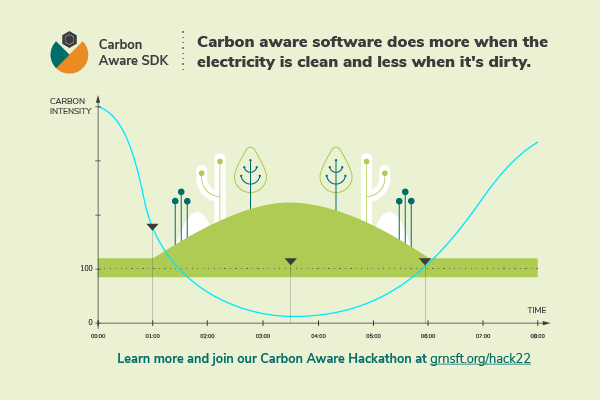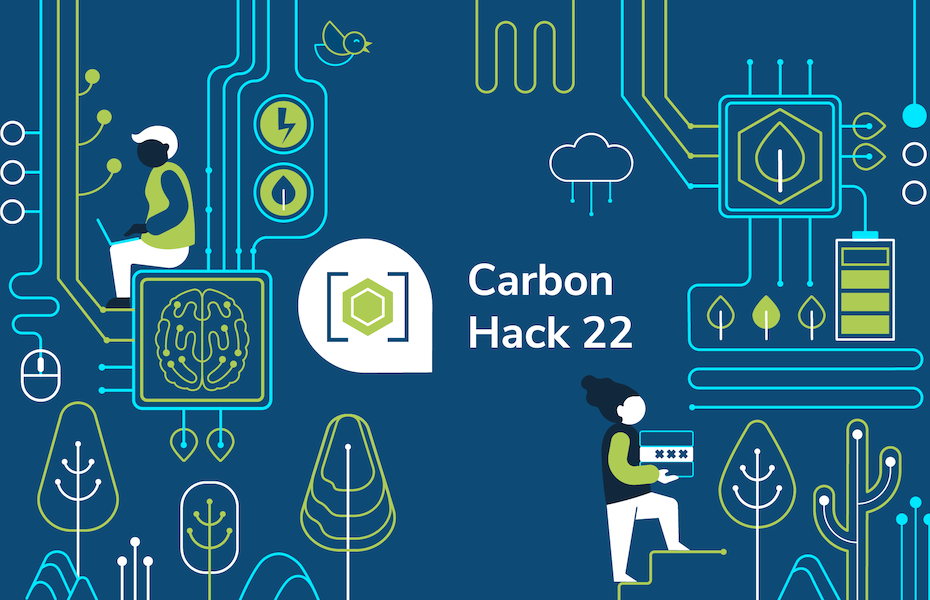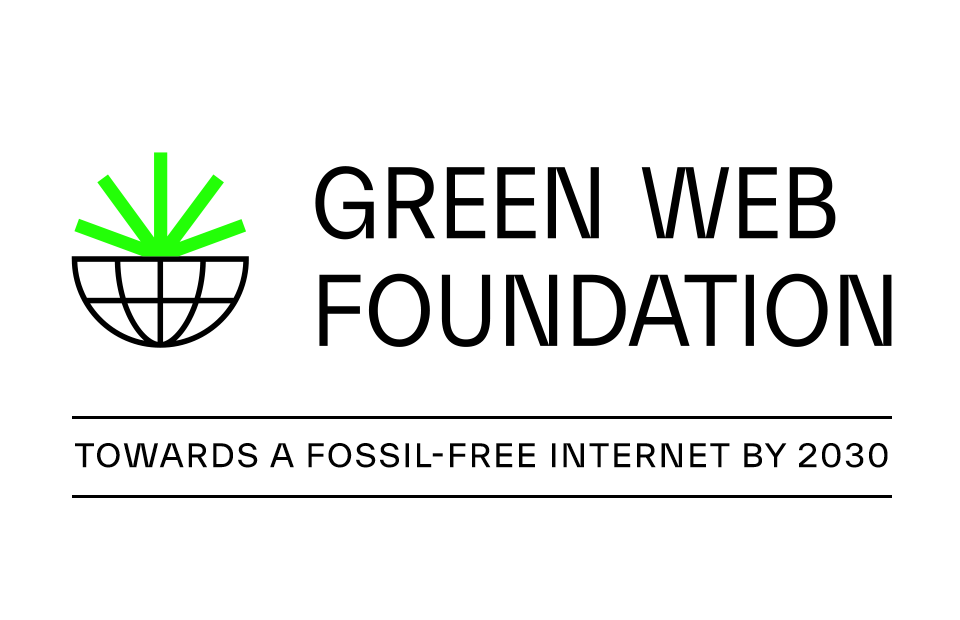Today sees our friends at the Green Software Foundation launch their most impactful hackathon yet, Carbon Hack 22!
This Hackathon invites software developers globally to build a software application using their Carbon Aware API & SDK. The SDK/API enables software to do more when the energy is clean and less when the energy is dirty. The goal is to reduce the carbon emissions that arise from when software runs.

The best carbon aware software solution built using the Carbon Aware API and SDK wins $40K with a total prize pool of $100K.
It’s definitely got to be worth a shot right?
What to build and resources to inspire
Project submissions must leverage the Green Software Foundation’s Carbon Aware API & SDK to create carbon aware software, or to create enhanced capabilities for the Carbon Aware SDK/API. Projects can be written in any language capable of connecting to the Carbon Aware SDK/API. That would likely include code, but it is not limited to it. We encourage participation of any type as we are looking for creative and innovative solutions to green software. There are many areas to explore.
The GSF hack requirements
We’ve compiled a few of our resources and past work to guide and inspire you on ideas for Carbon Aware applications across different categories.
Carbon Aware Cloud
- Carbon Aware Kubernetes
- Moving workloads to different regions and times.
Here at the Green Web Foundation we’ve been exploring some of these ideas too. Our recent post on Carbon Aware Scheduling on Nomad and Kubernetes might provide some helpful pointers. You might also be interested in checking our Grid Intensity CLI tool (referenced in the afore mentioned post).
Carbon Aware Web
- Branch magazine.
We were proud to launch Branch Magazine in association with Climate Action Tech back in autumn 2020. Since then we’ve published 4 issues, full of ideas and inspiration for how we can build a just and sustainable future for the internet.
The Branch site itself is built to be ‘Demand Responsive’. It adapts to reflect the physical infrastructure of the internet and the energy behind it. Utilising data from a grid intensity API and the user’s location, Branch has different interface designs that are shown dependent on the current energy demand and fossil fuels on the grid where the user is. Tom Jarrett, who worked with us on the design for Branch wrote a lovely article about the design principles.
Further more we’ve been working on our package CO2.js. This package brings together the best-in-class, peer reviewed carbon estimation models for data transfer and packages them up into a versatile, open-source JavaScript library. The CO2.js package also gives you easy access to quality grid intensity data, such as average and marginal intensity using an API.
The core idea behind CO2.js, is we want to help developers spend less time sourcing quality data and more time actually usingdata to build reliable, robust carbon measurements into their software, sites, and apps. We’ve published a CO2.js quick start guide with more info to get you started using it. We’re excited to see how this could be used in GSF’s carbon hack!
Other ideas
- Carbon Aware AI
- Training models in different regions and times.
- Inference, scaling down accuracy.
- Carbon Aware Blockchain
- Moving blockchain calculations to take advantage of lower carbon intensity.
- Standardize capturing green software metrics.
- New SDK/API capability
- New cloud providers
- New language platform
- New integration
Have a look at some of our other blogs posts to in our Carbon Aware Software category. One of our favourites is about creating a carbon.txt convention.
Have you registered for Carbon Hack yet?
There’s no time to lose!
Once registered, you will receive an email (within 24hrs) from GSF containing a Participation Package with detailed information about the hackathon and your WattTime key.



